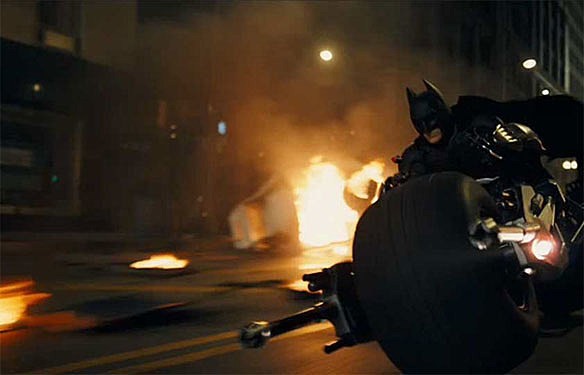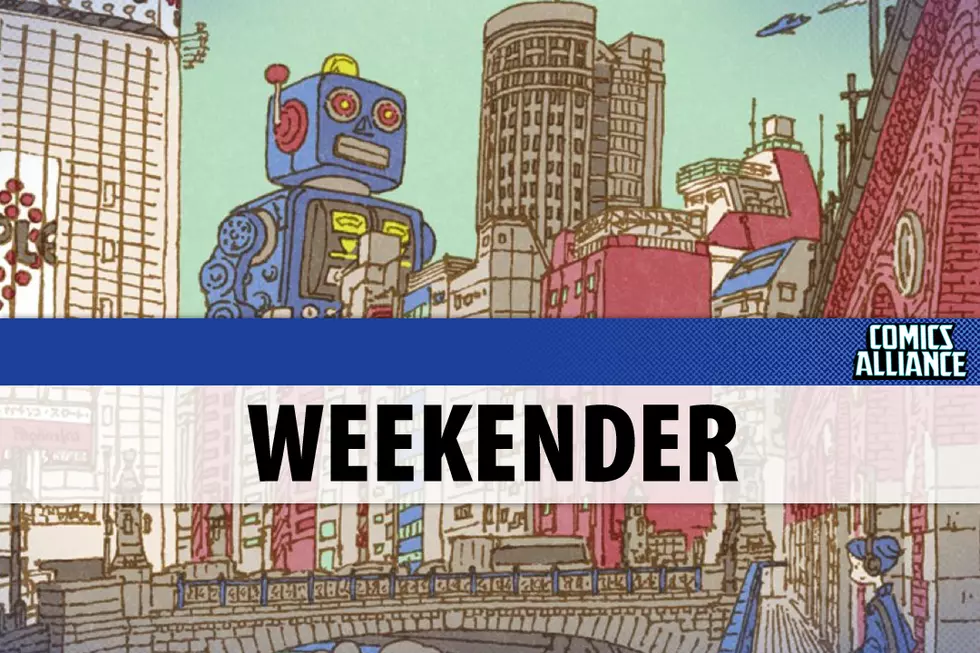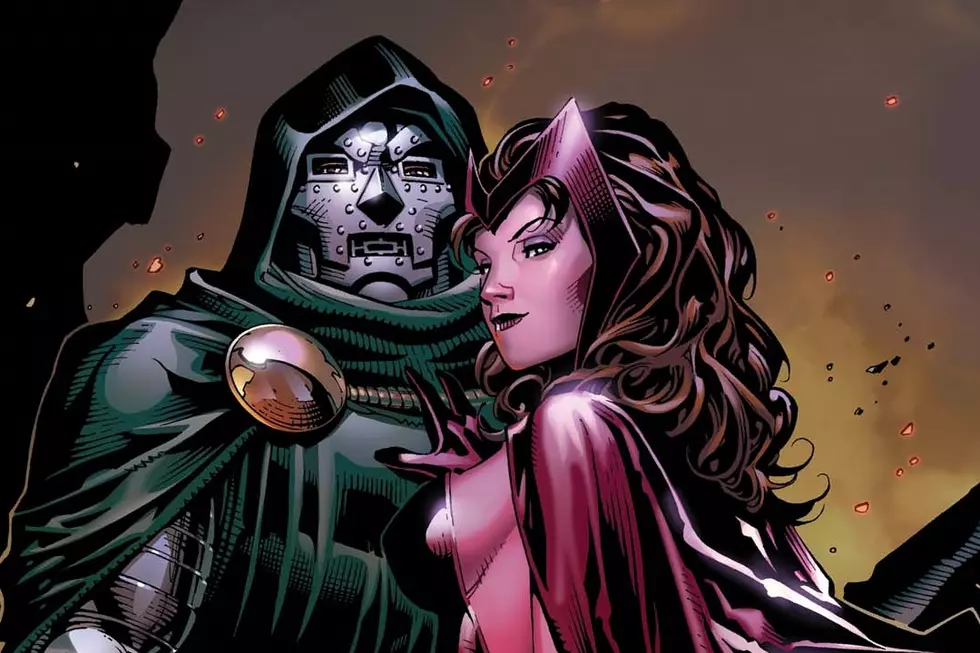
Law and the Multiverse Analyzes Legal Ramifications of Superhero Activity

If you got a kick out of Larry Niven's discussion of what life would be like if there really was a Superman zooming around at seven or eight times the speed of sound, you will probably love Law and the Multiverse. Written by lawyers James Daily and Ryan Davidson, the site publishes completely deadpan but hilarious essays that tackle questions of law when applied to day-to-day scenarios found in comic books like superpowers, resurrection, telepathy, secret identities, property damage, the constitutionality of outlawing superheroes, extra-human races, and state-sponsored vigilantism. For Law & Order fans of such dedication as ComicsAlliance Editor-in-Chief Laura Hudson and myself, this is the kind of beautifully nerdy endeavor that we could only have dreamed of, and it is both awesome and educational.
Click after the jump for some of our favorite excerpts from Law and the Multiverse.

On resurrection and criminal law, concerning specifically a murder victim who later returned from the dead:
if the victim was actually dead at some point, i.e. he really was dead, he wasn't simply missing or presumed dead, then the elements of the crime are still complete. The defendant did, in fact, kill the victim. Whether or not the victim stays dead is not actually an element of any homicide offense. So it would seem that this is ultimately irrelevant, which is perhaps a little counter-intuitive but does have the benefit of simplifying things a lot. As courts tend to like rulings which alleviate the burden on their dockets, this is not an unlikely outcome.

On superpowers as legal property:
One immediate consequence of viewing superpowers as property is that power-drainers like Rogue, Scrambler, or Leech may be liable for the tort of conversionand the crime of theft (or common law robbery, if you prefer) in addition to the tort and crime of battery for which they were likely already liable. This would only apply to unjustified uses of the ability, of course. Use of such powers against a willing subject or out of self-defense, defense of others, or necessity would still be justified.
But the consequences don't stop there. If Superman uses the power of a blue sun to bestow superpowers on another person, is that a taxable asset transfer? Who would want to try to collect?

On secret immortality and wealth:
...an immortal person could simply go on amassing property forever. The perpetual nature of the fee simple and the power of compound interest mean that even starting from abject poverty, an immortal person could become quite wealthy in a century or two and could become one of the wealthiest in the world if given a thousand years. Exactly why Apocalypse didn't simply buy every last scrap of available real estate as it came up for sale over the millennia is probably because that would have been boring, but as the best form of land use control is ownership, any number of nefarious plots would be a lot easier to pull off if you just bought the damn planet.
This presents two problems. The first is with anonymity, i.e. creating and maintaining a fictional person who is really one of the richest people in the world just doesn't work. An immortal who wished to remain largely anonymous would find it difficult to do that while maintaining any significant level of wealth, contributing to the other problems with maintaining an alter-ego. This is not an entirely academic point, as at least some degree of wealth will be necessary to avoid being forced to get a real job.

On telepathy and hearsay:
For example, when Professor X says "The witness remembers that John Doe shot JR," is that being offered to prove that John Doe did, in fact, shoot JR? If it is, then it is hearsay and inadmissible unless it falls under one of the exemptions or exceptions (which are beyond the scope of this post). I will just say that there are many such exemptions and exceptions and that the hearsay rule would not exclude much of any importance.

On resurrection and contract law:
Contracts are contracts and debts are debts, and though neither will follow one beyond the grave, coming back from the grave would seem to require leaving its protections behind as well. Here, it seems plausible that a judge would base the treatment of any outstanding debts on the way that the character goes about the rest of his assets. If he wants a clean break and does not attempt to reclaim any of his property that has gone through probate, a court could easily adopt the position that hey, he did die, and as he isn't trying to "undo" the legal effects of his death beyond the mere fact of his resurrection, allowing the debts to remain discharged makes some sense.

On Watchmen's Keene Act, which outlaws costumed crime fighters:
One route to making something a federal crime is to limit it to cases involving federal land, property, employees, etc, but the Keene Act seems too general for that. No, we must go big, and that means the Commerce Clause.The Commerce Clause is limited to interstate commerce, but there is an interstate market for crime prevention and investigation services (e.g., private security firms, private investigators, bounty hunters). Firms and individuals involved in this market routinely work across state lines. The Keene Act could be based on requiring, for example, that anyone working in such a market do so under their real identities. The legitimate government interest would be the safety of consumers of such services; it is valuable for consumers of such services to know who they are dealing with. Thus the Keene Act could satisfy rational basis review under the Commerce Clause.

On alter-egos:
The basic problem then is that to create a new identity without government authorization requires the commission of a number of felonies, potentially including making false immigration statements (18 U.S.C. 1015), identification document fraud (18 U.S.C. 1028), perjury (18 U.S.C. 1621) and numerous related offenses under state law. And trying to live in contemporary society without such documents will be very, very difficult. One cannot buy a car, rent an apartment, get a checking account, or engage in a host of transactions essential to the logistics of mundane life without some form of government identification, identification which a superhero wanting to create a new mundane identity for his masked persona would need to forge. Creating successive false identities all but requires one to engage in illegal activities. So much for being a law abiding citizen.

On whether Batman is a state actor:
Commissioner Gordon is certainly a person for whom the State is responsible, and Batman often acts together with Gordon and obtains significant aid from Gordon in the form of information and evidence. Batman's conduct is also otherwise chargeable to the State because the Gotham Police Department has worked with Batman on numerous occasions (and thus knows his methods) and operates the Bat Signal, expressly invoking Batman's assistance in a traditionally public function. This suggests state action under the public function theory: "when private individuals or groups are endowed by the State with powers or functions governmental in nature, they become agencies or instrumentalities of the State and subject to its constitutional limitations." Evans v. Newton, 382 U.S. 296, 299 (1966).
Read much, much more at Law and the Multiverse.
More From ComicsAlliance









